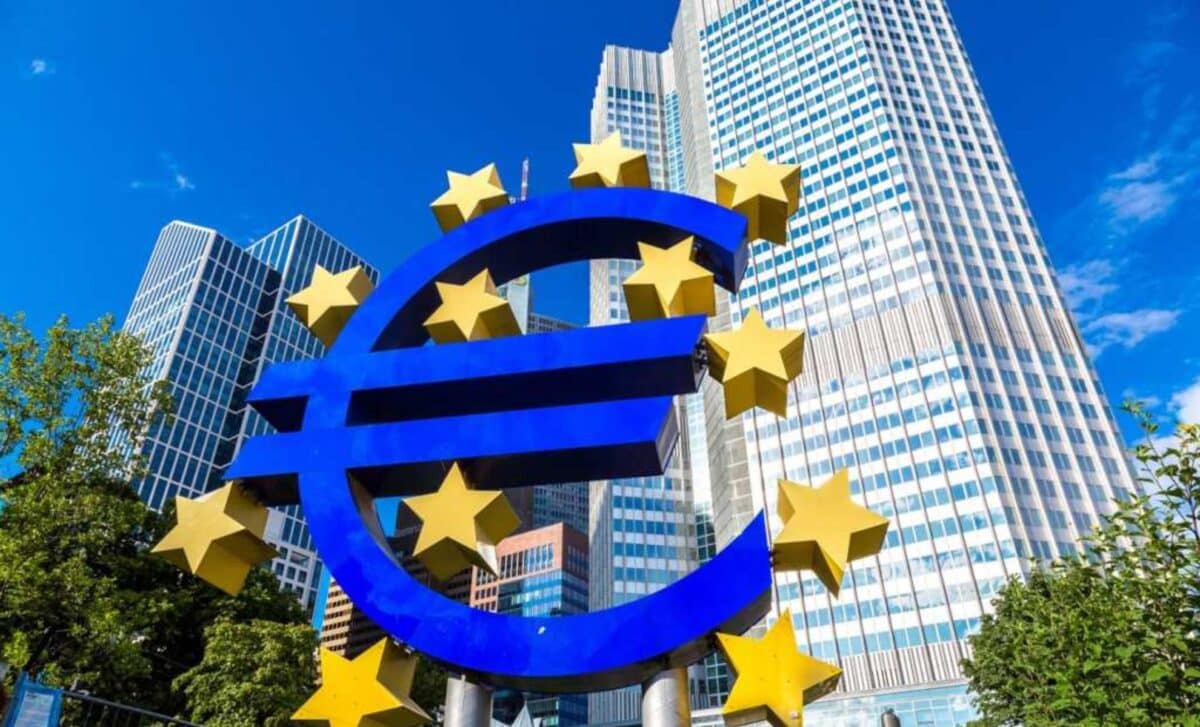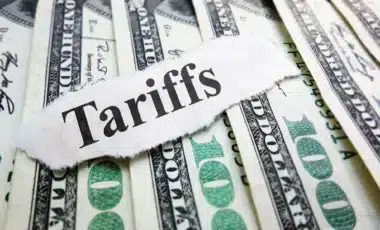The European Central Bank’s Chief Economist warned that ongoing inflation threats may prevent the ECB from implementing rate cuts this year, despite acknowledging the possibility of an economic downturn.
Euro-zone economic evaluation
The euro-area’s economic situation has been disappointing lately and is likely to demonstrate that politicians were overly optimistic when comes the time for four-quarter results’ release, said the economist in a recent interview. In the meantime, conflicts of a geopolitical nature, like the ones taking place in the Middle East, risk to disturb the course of the energy markets as well as the supply chains, keeping tensions on costs that ECB can’t turn a deaf ear to.
“The geopolitical threat has increased because what we saw until now by the Houthis — I think it’s not the end, it might be the overture to something much more broad-based, which will impact the Suez Canal and increase the prices there,” the expert said Monday. “We should not bank on the rate cut at all for 2024.”
Inflation was very close to ECB‘s last year’s late target of 2%, leaving the floor for speculation about the time lawmakers would overturn the biggest tightening of monetary policy campaign since the euro was introduced back in 1999. Marketeers are wagering on 6 quarter-point cuts, beginning in April, while economic experts are expecting a first of four moves next June.
Reflecting on his colleagues’ views, the ECB’s Chief Economist remarked that it was “too early” to consider reducing borrowing costs.
“Once such a date would be set, it would trigger immediately a dynamic which we cannot control,” said the economist, who also presides in the Central Bank of Austria. “And with all the knowledge we currently have, it would not be honest to do it, because we don’t know how inflation will develop.”
Joachim Nagel, Bundesbank President, also acknowledged that it was indeed precipitated to discuss monetary cuttings, and thus suggested making no moves until next summer.
“Maybe we can wait for the summer break or whatever, but I don’t want to speculate,” he stated in Davos, insisting that officials will stay data-dependent. “I think it’s too early to talk about cuts.”
The European Central Bank sees headline inflation reaching 2% in 2025 last half, meanwhile fundamental cost pressures are expected to stay above the limit throughout the end of 2026.
Concerns amid weakening economy
Holzmann characterized the current trend as a “sideways movement” and cautioned that it could persist. Despite the economic slowdown, wage demands have not shown a decline and recent labor agreements in Germany, the Netherlands and Austria indicate “quite high” increases.
That is regardless of the weakening economy. Germany reported a 0.3% contraction in the fourth quarter and similar decline in output for the entire year of 2023 on Monday.
Holzmann noted that the Governing Council’s evaluation has become “mildly more skeptical” in recent months. He expressed concern that the upcoming release of fourth-quarter data for the Euro-zone on January 30th may result in a slightly less optimistic outlook.
Although he doesn’t foresee the region experiencing a “real recession”, Hotzmann acknowledged the vulnerability to a recession triggered by external factors.
“If geopolitical risks lead oil prices going up, gas prices would shoot up, this would also hit in a number of industries which are already hit. Perhaps even the services industry,” he said. “Then, a recession is not improbable.”









